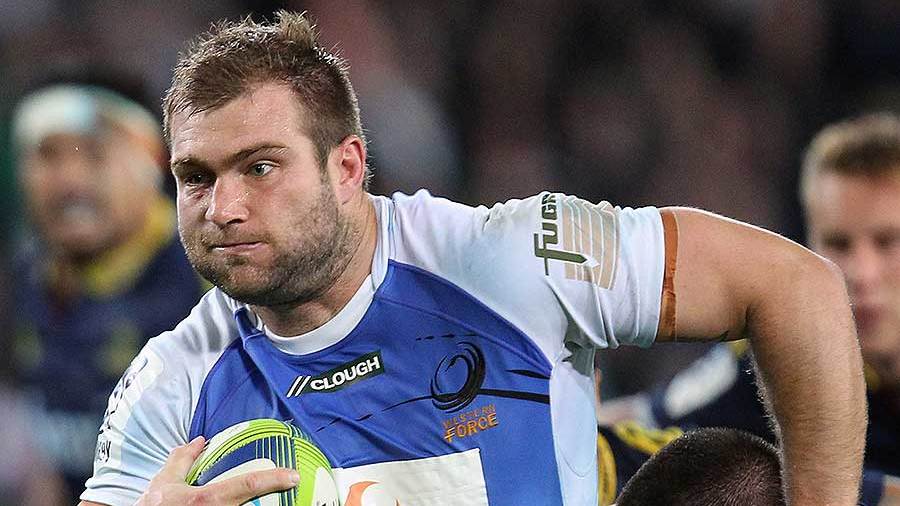|
Australia
ARU looking fondly at Japanese contract option
April 1, 2015
Ruck'n Maul: McCalman may force ARU's hand
The Australian Rugby Union is battling to head off a mass player exodus after the 2015 Rugby World Cup, with chief executive Bill Pulver saying he would prefer Wallabies stars to pursue short-term deals in Japan rather than heading to Europe. Test stalwarts including Wallabies vice-captain Adam Ashley-Cooper and 2011 Rugby World Cup skipper James Horwill have already confirmed they will farewell Australian rugby this year, with another 20-odd stars coming off contract. Israel Folau, Kurtley Beale, Bernard Foley, Quade Cooper, Will Genia and James Slipper head the list of those in the sights of cashed-up overseas and NRL clubs. 
Ben McCalman is reportedly looking to head to Japan en route to New South Wales
© Getty Images
Enlarge
Pulver said on Wednesday, 24 hours after unconfirmed reports that Ben McCalman was joining fellow Wallabies No.8s Scott Higginbotham and Wycliff Palu in heading to Japan. that the ARU was busily trying to "finesse" more flexible player contracting models to be introduced in a bid to prevent an alarming player drain. "Clearly we don't like losing our best talents to play in overseas markets," he said. "We want Australian rugby fans being able to watch them playing here. "So we're just navigating that path between using flexible contracts to give them incentive to remain in Australia, but also to manage the player welfare considerations. You don't want these elite players playing too much rugby in a year to the point that they're going to burn themselves out. And by the way, they don't want that either. So we're just trying to get that balance right and I think we are heading on the right path." Under current guidelines, players can be selected for the Wallabies only if they play Super Rugby in Australia. "The Japanese season works better for us, the alignment of the time zone works better for us," Pulver said of the ARU's preferred compromise to allow elite players to take up short-term offers in the Top League. "It's a shorter season and arguably less demanding in a physical nature than some of the northern hemisphere competitions." Pulver said a "wonderfully loyal servant" like Ashley-Cooper, a 104-Test veteran who turned 31 last week, not only had the ARU's blessing to head to France but also the union recognised his decision to move helped the governing body. "Him leaving frees up resources for us to start investing in younger players who are going to be more relevant in relation to the 2019 World Cup," he said.

The Waratahs' Israel Folau watches on,
© Getty Images
Enlarge
"Israel Folau - a much different situation. Younger, we think he has a much longer horizon for Australian rugby. He is someone who is universally popular around the world. So a flexible player contract could potentially very relevant to that situation provided you get the player welfare balance right." Pulver said the need to refresh the talent pool after the Rugby World Cup in England, and allowing some other aging Wallabies to move on, was central to the ARU's strategy. "We're going into this with a view that we can retain everyone that we want with the right policies in place," he said. "I don't want to talk specifically about any individual negotiations, but clearly in the case of Israel we're eager to keep him and we'll do our best to achieve that." © AAP
|
Live Sports
Communication error please reload the page.
-
Football
-
Cricket
-
Rugby
-
- Days
- Hrs
- Mins
- Secs
F1 - Abu Dhabi GP
Abu Dhabi Grand Prix December 11-131. Max Verstappen ()
2. Valtteri Bottas (Mercedes)
3. Lewis Hamilton (Mercedes)
4. Alexander Albon ()
5. Lando Norris ()
6. Carlos Sainz Jr ()
-
ESPNOtherLive >>
Darts - Premier League
Golf - Houston Open
Snooker - China Open
Tennis - Miami Open

